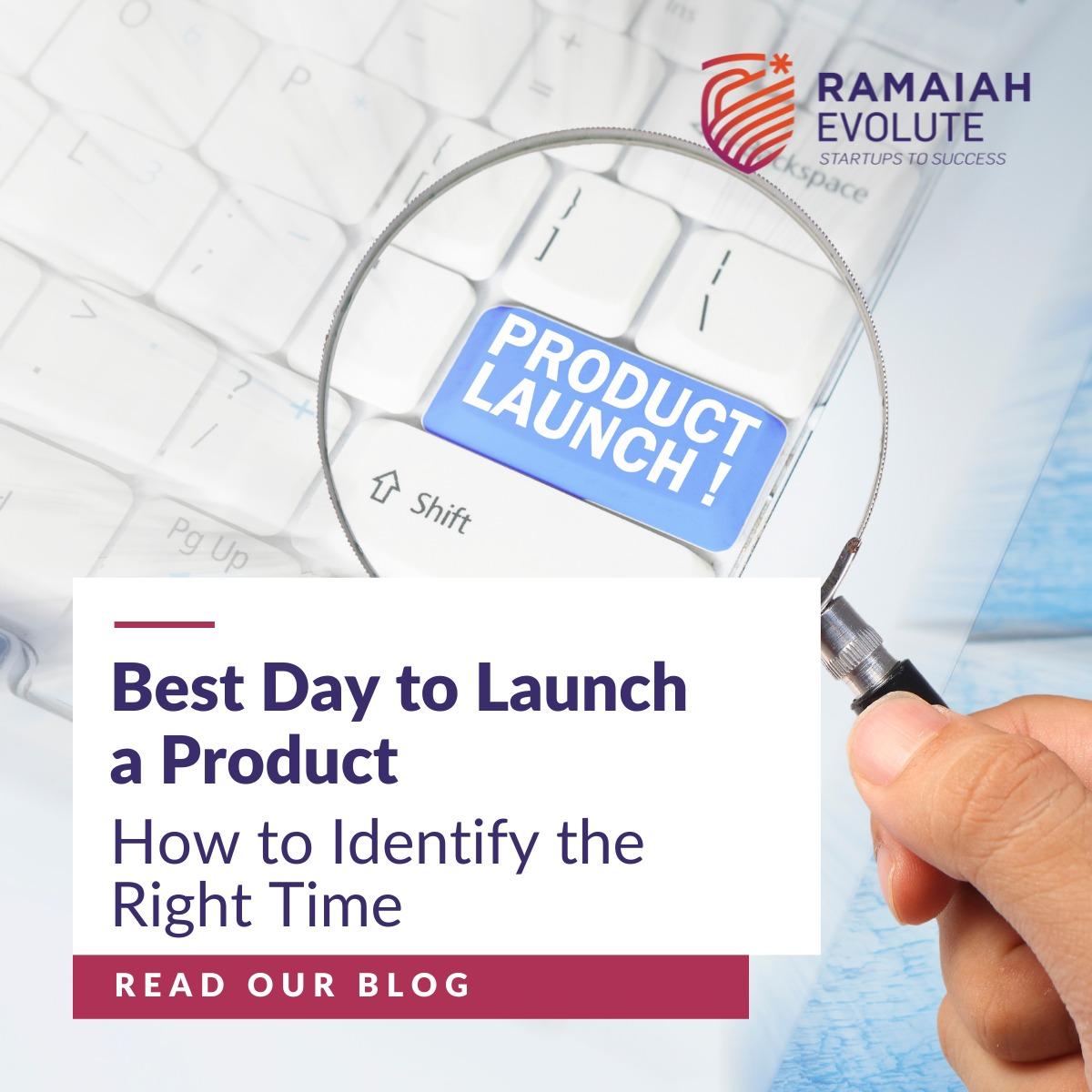Best Day to Launch a Product

Launching a new product is a critical moment in any business’s journey. Timing can significantly impact its success. Choosing the best day to introduce your product to the market is not a matter of random selection; it requires careful consideration. In this article, we will explore how to identify the right time to launch your product for maximum impact.
- Understand Your Target Audience : Before deciding on a launch date, it’s essential to have a deep understanding of your target audience. Who are your ideal customers? What are their habits, preferences, and behaviors? When and how do they typically make purchasing decisions?
By conducting thorough market research and customer profiling, you can gain insights into when your target audience is most active and receptive to new products. This information can guide your decision on the best day for your product launch.
- Consider Seasonal Trends : Seasonal trends play a significant role in product launches. Depending on your product, there may be seasonal peaks when demand is naturally higher. For example:
- If you’re launching a swimwear line, spring or early summer might be ideal.
- A holiday-themed product could be introduced in the lead-up to the relevant holiday season.
- Back-to-school products should hit the market well before the school year begins.
Aligning your product launch with these seasonal trends can help you take advantage of the increased consumer interest.
- If you’re launching a swimwear line, spring or early summer might be ideal.
- Competitor Analysis : A comprehensive competitor analysis can provide valuable insights into your industry’s product launch patterns. Observe when your competitors tend to release new products and whether they coincide with specific events or seasons.
You might choose to launch just before or after a major competitor’s product release to capture some of the buzz generated by their marketing efforts. Alternatively, you could opt for a different time to stand out and avoid direct competition.
- Industry Events and Trade Shows : Industry-specific events, trade shows, and conferences can be excellent opportunities for product launches. These events bring together a concentrated audience of professionals and potential customers interested in your industry.
Consider launching your product in conjunction with a relevant event, either by participating as an exhibitor or by piggybacking on the event’s media coverage and networking opportunities.
- Day of the Week : The choice of day of the week for your product launch can also make a difference. Here are some factors to consider:
- Weekdays : Launching on a weekday can be advantageous because people are typically more focused on work-related activities and may be more receptive to professional messages.
- Tuesday, Wednesday, or Thursday : These mid-week days are often considered optimal for business-related communications. Mondays can be busy catching up from the weekend, while Fridays may see a decline in engagement as people look forward to the weekend.
- Weekend : For certain products, especially those related to leisure and entertainment, weekends might be more suitable. People have more free time to explore and make purchase decisions.
- Weekdays : Launching on a weekday can be advantageous because people are typically more focused on work-related activities and may be more receptive to professional messages.
- Avoiding Clashes with Major Holidays or Events : Launching your product on a day that clashes with a major holiday or event can be counterproductive. People’s attention is often diverted during these times, and your product may get lost in the noise.
Conduct research to identify any major holidays, cultural events, or industry-specific happenings that could potentially overshadow your launch. Aim to avoid launching during these periods.
- Account for Lead Time : Keep in mind that a successful product launch requires adequate preparation, including marketing, PR, and inventory management. Factor in the lead time needed to execute these activities effectively.
For example, if your product launch involves a substantial PR campaign, you may need several weeks to secure media coverage and build anticipation among your target audience. Plan your launch date accordingly, allowing ample time for these activities.
- Weather Considerations : Weather can significantly impact certain products and industries. For instance, if you’re launching a new line of winter jackets, it makes sense to launch in the lead-up to the colder months.
Conversely, if your product is related to outdoor activities or seasonal hobbies, you’ll want to consider the weather conditions that are most conducive to its use.
- Feedback and Testing : Before settling on a launch date, consider conducting a soft launch or test release to a smaller audience or market segment. This can help you gather valuable feedback and refine your product and marketing strategies.
After gathering feedback, you can make any necessary adjustments and then proceed with your full-scale product launch on the optimal date.
- Plan for Follow-Up and Sustainment : A successful product launch isn’t just about the initial introduction; it’s also about sustainment. Plan for ongoing marketing efforts, customer engagement, and support after the launch to maintain momentum and ensure long-term success.
In conclusion, the best day to launch a product is not arbitrary but based on a combination of factors, including your target audience, seasonal trends, competition, industry events, and lead time for preparation. By carefully considering these elements and conducting thorough research, you can identify the right time to introduce your product to the market for maximum impact and success.
SHARE

